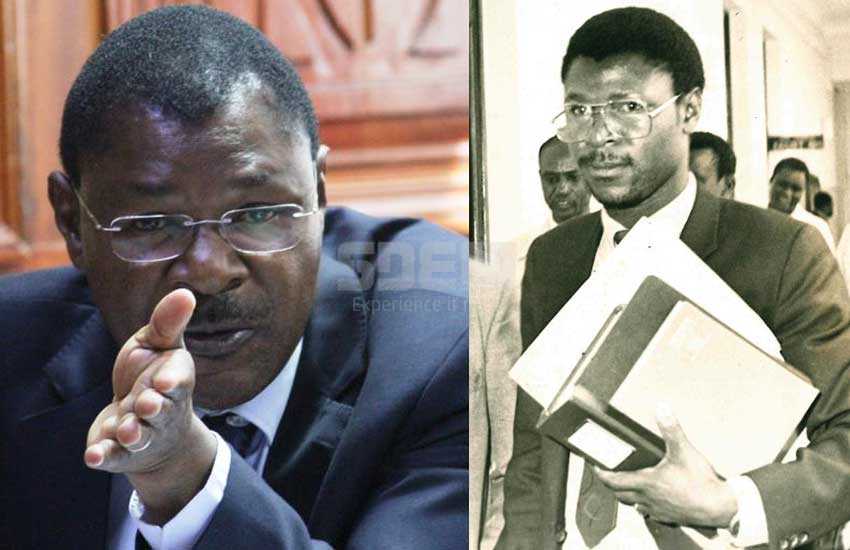
You rose to fame as a lawyer by defending soldiers implicated in the 1982 coup. Why did you take up those briefs, were you paid?
A lawyer must be ready to defend any person. That is what we were taught at the university. I had just resigned and joined private practice after serving as a magistrate for one year.
When the coup brief came, I took the cases. I was paid very little cash, not more than Sh30,000. The rest is history.
Former president Daniel Moi nominated you as a KANU MP, how is your relationship with him having served as his lawyer?
It’s excellent and he is a friend of mine. Since he left office, I have met him formally twice when I served as a Minister.
I plan to visit him soon and reflect on the past. This I will also do with Hon Mwai Kibaki who not only appointed me Minister, but also monitored my work at Foreign Affairs closely.
You have always been a pro-establishment politician. How is it like being in the opposition?
It is not right to call me such. When I was defending coup plotters - (Hezekiah) Ochuka and (Pancras Oteyo) Okumu - I was not defending them as a pro-establishment politician.
Secondly, I was close to Masinde Muliro and was also Kijana Wamalwa’s legal adviser. Those two were not establishment figures.
If you look at the Hansard then, even as a nominated Kanu MP, my contributions were pro change. I worked closely with Mukhisa Kituyi, Martha Karua, George Anyona, Kiraitu Murungi and Dalmas Otieno.
That’s why in 1997, I was part of the team that engineered the Inter-Parties Parliamentary Group (IPPG) reforms that eased tension in the country.
That Mungatana soft loan... How do you just give someone Sh12 million like that?
He was a friend in distress when I advanced him the cash. Unfortunately, he let me down and we have gone to court. I don’t want to discuss anything beyond that as that matter is in court.
Why are Luhya politicians unable to fit in the shoes of the late Masinde Muliro and Kijana Wamalwa?
Muliro brought Luhyas together. We give him credit for that. But he lived in different times to ours and the issues were probably different. Wamalwa too did a very good job in 2002 when he rose to become the vice president.
But again the situation favoured him as many Kenyans voted for Narc in protest after president Moi tried to hand pick Uhuru Kenyatta as his successor.
That was an opportunity for Wamalwa to bring Luhyas together.
Hon Kalonzo and you were among PNU leaders who fought Raila Odinga. Now you are working with him to take on Uhuru who was your ally then. How do politicians work these things out and still sleep soundly?
Raila, Kalonzo and I were in the grand coalition government. People shift alliances in politics. Today’s government is tomorrow’s opposition.
In politics, there are allies and opponents depending on what you stand for. That is how democracy works.Today, I cannot conceive a situation where Kalonzo and I can fit in Jubilee.
In March 2012, you were stranded in Bamako, Mali during a coup d’etat. You were given a seat on a UN plane, but you offered it to fellow Kenyan, Boniface Kaberia. What made you take such a decision?
When you are a general, you don’t run away when you see a storm coming and leave your soldiers to perish. I knew that my position as a Minister put me in a dangerous situation, but I was less vulnerable than the ordinary Kenyan.
When one seat was available I decided to let a more vulnerable countryman home instead.
 The Standard Group Plc is a multi-media organization with investments in media
platforms spanning newspaper print
operations, television, radio broadcasting, digital and online services. The
Standard Group is recognized as a
leading multi-media house in Kenya with a key influence in matters of national and
international interest.
The Standard Group Plc is a multi-media organization with investments in media
platforms spanning newspaper print
operations, television, radio broadcasting, digital and online services. The
Standard Group is recognized as a
leading multi-media house in Kenya with a key influence in matters of national and
international interest.
